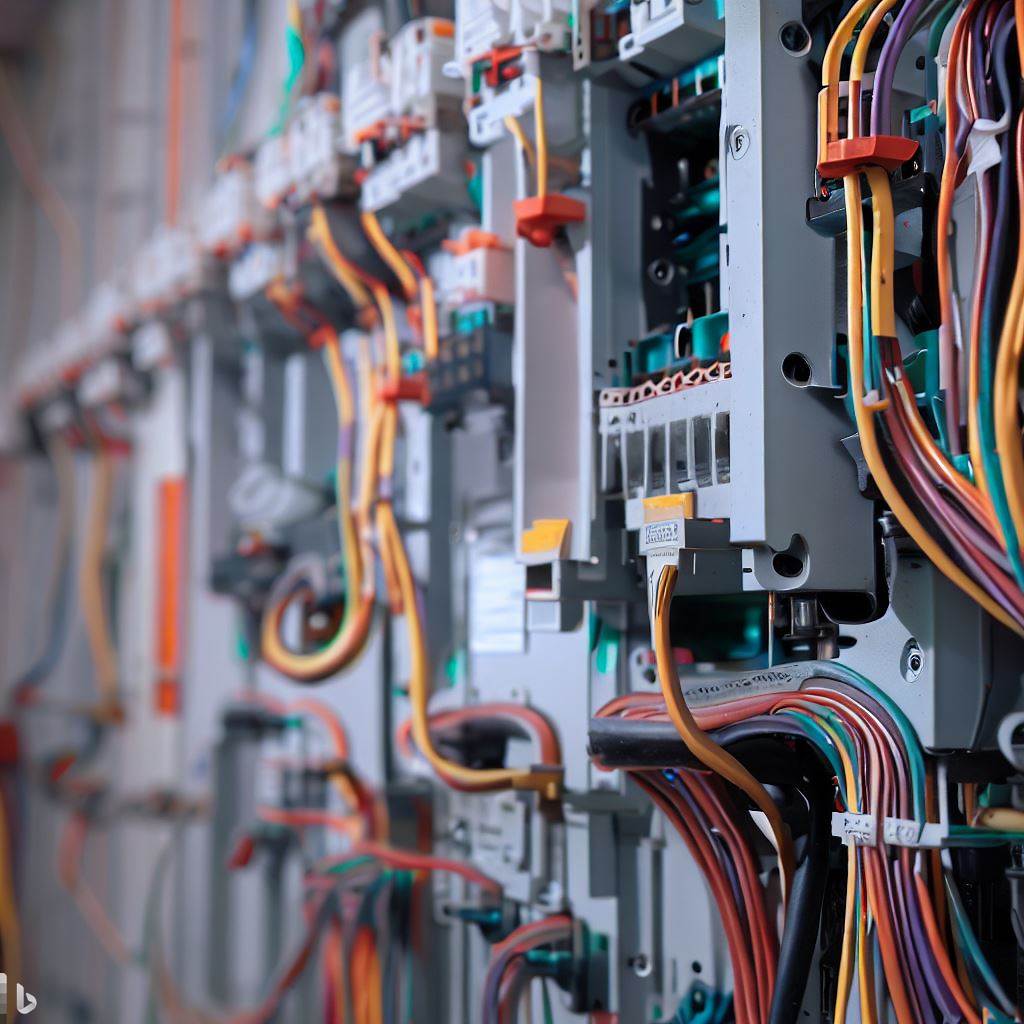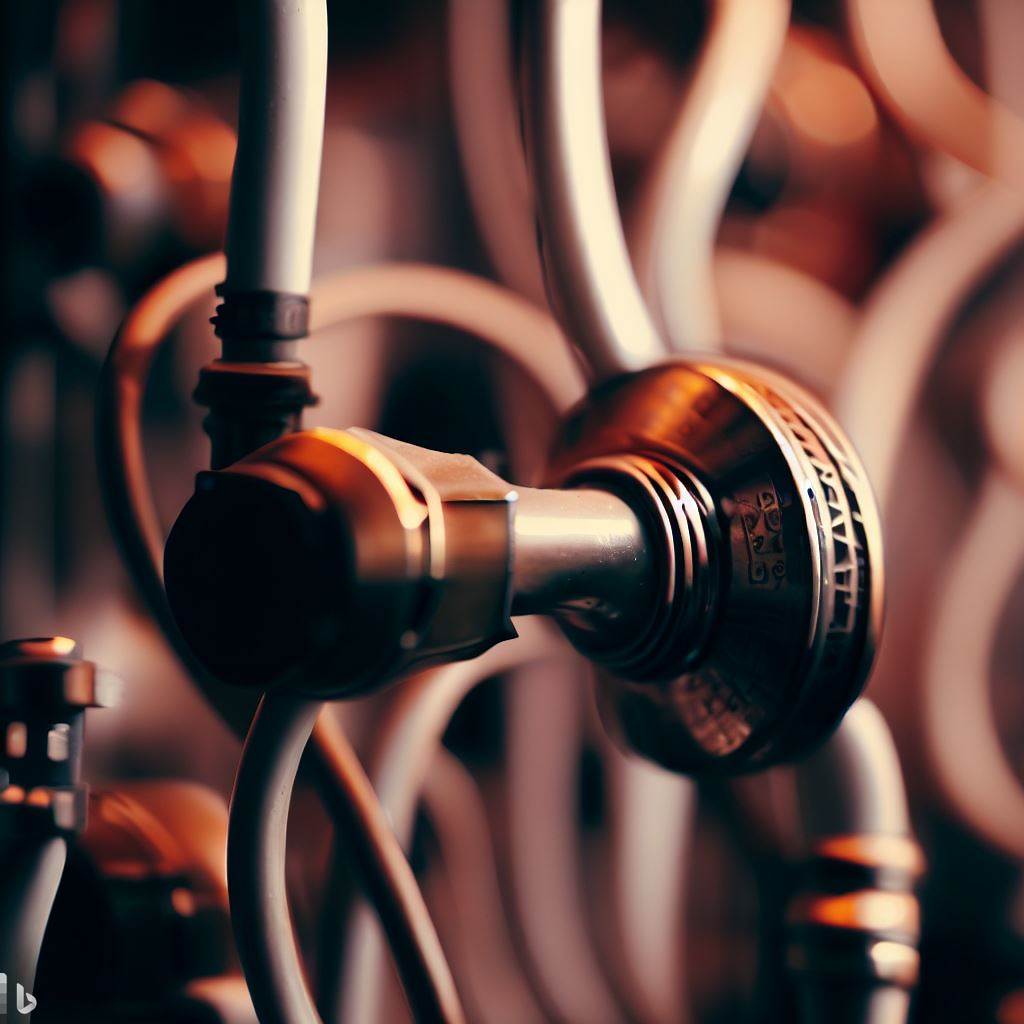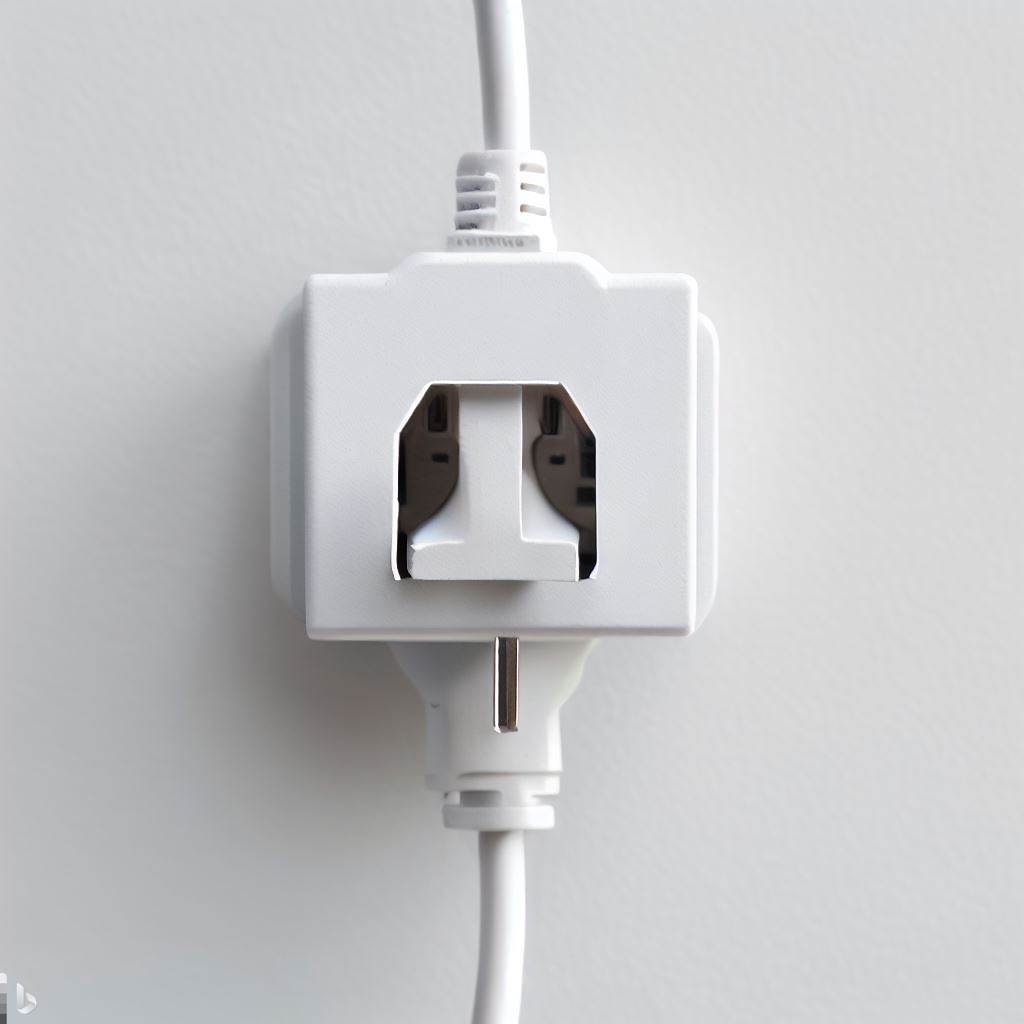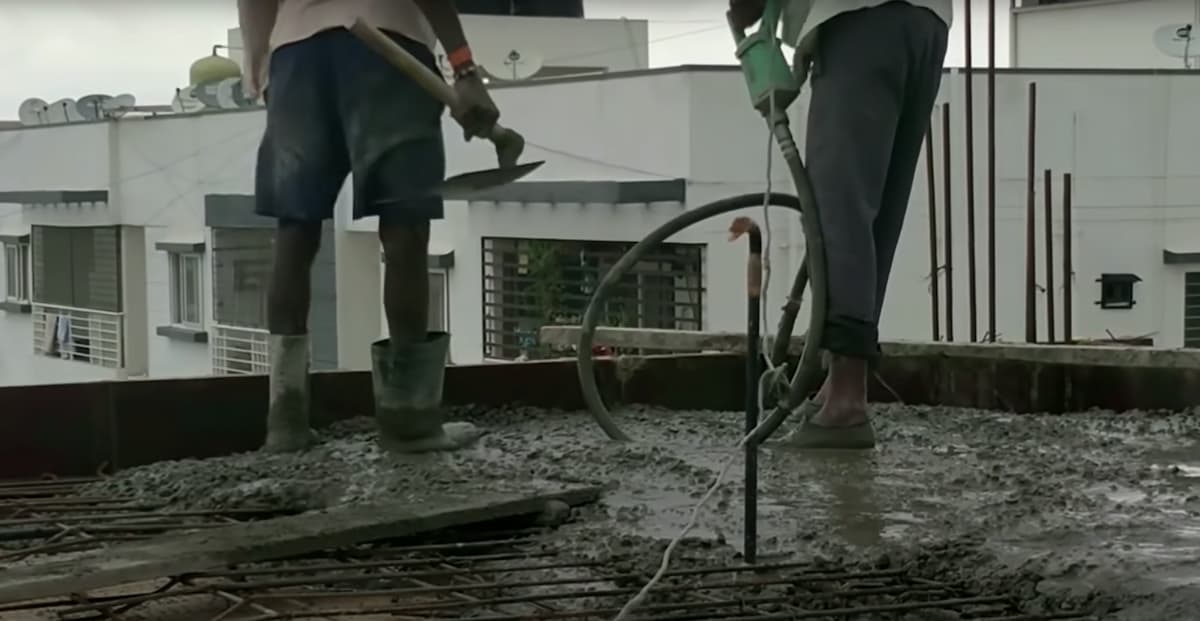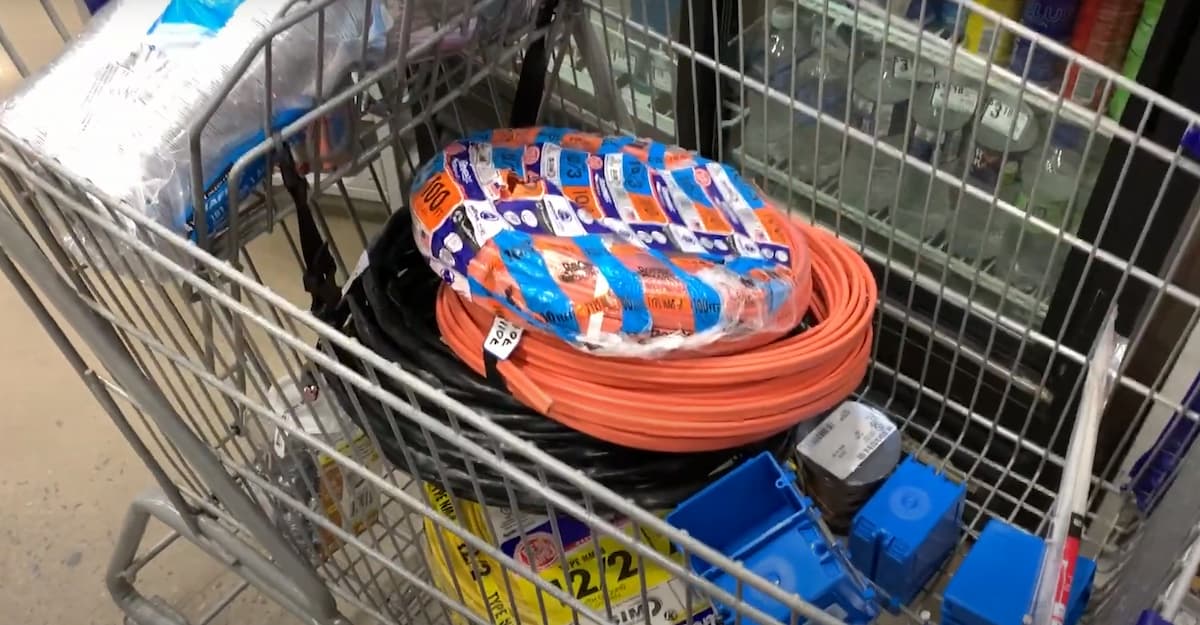
It turns out the answer to this question is a bit complicated. Electrical wires can be made from copper, aluminium, or steel and prices may vary depending on the materials used in their construction. For example, if you choose to purchase an insulated steel wire then your costs might be around $3 per metre in length. If you want to go with copper wiring then it might come at about $6 per metre. The best thing that you can do is get in touch with a local electrician who knows all the ins and outs of the electrical work and pricing before making any decisions for yourself.
What are Electrical Wires?
Electricity is used in homes and businesses around the world because it gives people access to numerous types of power they can use for their different needs. There are many appliances that run on this type of energy, including space heaters, stoves, air conditioners, ovens, microwaves and so much more.
The wires that carry this electricity form an important part of any large building. These wires may be thick enough to transmit enough power without causing too much electrical overload when multiple appliances are running together. They could also be insulated to prevent against shocks or other dangers to people near them. Installing these wires is a job best left to experienced electricians in order to make sure the wiring is done properly in all areas of your home.
What are the Different Types of Wires?
There are three main types of wire in use in homes today, each with its own distinct properties. The first major type is known as Romex and this is a single sheathed plastic insulated wire that is used for running cables throughout walls, ceilings, and floors. This type is not flame retardant so it cannot be used around places where things may get hot enough to cause a fire hazard. It is available in various thicknesses denoted by the number of wires inside the cable. The thinner stuff can handle up to 100 amps at 120 volts while thicker cable can manage 150 amps at the same voltage level.
The second most common type is known as Copper which comes in either rigid or flexible form. Copper is not only a great conductor of electricity, but it is also an excellent conductor of heat which makes it perfect for use in things like ovens and space heaters. It is also possible to find this type of wire with a non-metallic coating on the outside, making it easier to install inside walls without having to make a hole.
A flexible metal conduit is another option that has been around for many decades. This comes in either rigid or flexible form and can be used for moving wires around large areas that cannot be drilled into from one location. The best thing about this type of wire is that it can be simply bent into place using hand tools, making installation easy compared to other materials you get today. There are two major types of flexible conduit, one for use with non-metallic sheathed cable and another type that is used for armoured cables.
Factors That Affect the Electrical Wiring Cost?
There are many different factors that can come into play when trying to determine what you may be expected to pay for your electrical wires. These include but are not limited to material, thickness, length, quantity, wire nameplate information, colour code requirements, form factor (Romex or otherwise), whether it’s insulated or not, weather conditions at the time of sale (outdoor stuff tends to cost more) and so on. You could always check with a local electrician who knows about pricing to figure out just how much you’ll have to pay in order to get the job done right.
How to Get a Good Deal on Electrical Wiring?
The best way to get a good deal is to talk with local suppliers of electrical wiring before ordering anything. This may give you an idea of how much you can expect to pay in order to add new wires to your home or business so that when it comes time for installation, you won’t be told something outrageous by the electrician who comes out and does the work. Get quotes from several places so that you’ll know what your options are and what kind of price range you’re looking at when trying to determine just how much it’s going to cost for new electrical wire services in your area.
Electrical Wiring Installation Australia
Many people often ask what is involved in electrical wiring installation and the best way to describe it would be to say that it’s a bit like building a house, only on a much smaller scale. You first have to drill holes so that the wire can go through and then you need to install things like breaker boxes, junction boxes, wall outlets, ceiling lights and so on. Every single piece can potentially be checked for electricity safety before being installed as well as after which is why many services require an electrician or other specialist who knows how everything could look when done correctly.
After checking with local suppliers of such things as Romex cable and conduit, you may know how much work your project might take and thus get a better idea of what you could be charged for the service. Don’t forget to ask about any discounts or special offers so that you can get a better deal on the electrical wiring installation costs in your area.
Average Cost for Electrical Service Australia
The average cost for electrical service depends on where you live and what kind of service is required. If your home or business doesn’t have any existing wiring, the cost to get it installed may obviously be more than if you already have an electrical system in place. You might also need new outlets put in at various places so that you can plug all sorts of things into them, which means even more money spent on something that would normally just be part of the initial installation costs.
An electrician could be able to tell you ahead of time just how much work is involved with your particular project so that there won’t be any surprises when they come back with their estimate. This makes it very simple for you to figure out exactly how much it may cost you to have the wiring installed at your home or business. You can then decide if that’s enough for what you want or if you would like them to go ahead and make several corrections so that everything is done correctly.

Electrical Wiring Cost and Quotes
You could always get quotes from several places before hiring any services for electrical wiring installation. A good way to find these kinds of contractors is by asking around, either with friends who recently had something similar done, family members who might know someone appropriate, your doctor or even your dentist. Many people only ask the one person they know but this often leads to many mistakes being made because different professionals are used for each job.
You need a plumber to do the plumbing and an electrician to handle the electrical wiring installation. If you only ask one and they recommend someone and it’s not what you wanted, then you’ll be stuck with having to find another company who might charge more or even do a worse job than if you had asked several people for advice beforehand.
The cost of an electrician’s service varies from $80 to $130 per hour, depending on the job. Depending on how many lights and outlets need to be installed, this can vary greatly. Many companies offer a flat rate which could help you figure out exactly what your costs may be before the work is started. This also helps them plan for what needs to be done and how much time it might take so that they don’t make any mistakes or miss anything.
Knob and Tube Wiring
Another factor that might raise the price of having your electrical wiring installed is whether or not any knob and tube wiring need to be replaced. This older system has been banned from use for many years but some homes still have it in place so you need to be aware of what’s going on before getting yourself a quote.
Knob and tube wiring was used a great deal more decades ago than it is today so don’t let this influence you one way or another about hiring someone to do the work. If there are any problems, they may be dealt with as soon as possible since no one wants an electrical fire hazard to occur because something isn’t up to code. There are also some laws that prohibit anyone from working on knob and tube wiring unless they are fully qualified to do so.
It’s important that you take all of these factors into consideration when it comes to the cost of having your home or business’s electrical wiring installation started. You don’t want to spend more than you can afford but it’s also not good to cut corners and end up with an even bigger bill because something is sub-par or dangerous.
Rewiring of Electrical Wiring Costs Australia
The average cost of rewiring a house is one of the most significant factors to consider. Rewiring a home isn’t cheap. However, it is necessary for the safety of your family. After all, more than 40% of residential fires in Australia are caused by electrical faults or failures resulting from faulty wiring or overloading the system.
To rewire a house could range from simply replacing a few faulty electrical outlets to completely upgrading all the outdated wiring with new wiring throughout. You might be simply covering the basics, or considering the future and setting up your home for complete home automation. Because rewiring projects are so varied, it’s difficult to put a single price tag on them. However, the average cost to wire could be between $3,500 and $8,000 for a mid-sized property.
An electrician’s hourly rate may be as low as $35 and reach as high as $80 per hour. The average cost for an electrical service depends on the location of your home, which electrician you choose and how much work needs to be done. The national average for a rewiring job may be between $3,000 and $4,500. To install electrical wiring from scratch, may cost much more.
The Average Cost to Wire for Simple Jobs
You may not require the rewiring of your entire home. The following are some of the expenses and average cost that’s involved with smaller rewiring jobs.
- Kitchen cost to wire may be around $500.
- Cost to wire downlights, up to $500.
- Cost to wire or replace a light switch $100
- Fixing a damaged electrical outlet $200
- Electrical circuit fault finding $100
Keep in mind that most of these are without the electrician’s hourly rate which may add up when you install electrical wiring from electrical boxes or an electrical panel.
How Long does an Electrical Installation Last?
The average lifespan of an electrical installation is up to 50 years. However, there are many factors that can affect the life of your wiring and it’s important that you don’t try to fix everything on your own. It isn’t recommended that you start replacing faulty wires or electric appliances unless you have been given explicit instructions by an expert. The older the home the more difficult it is for an electrician to find faults in your system. The faulty electrical outlet can often be hidden behind walls, ceilings or floors which makes them almost impossible to spot without prior knowledge or experience when doing DIY repairs.
Take into consideration all these facts when in need of professional advice before starting out in installing any new setups on your property. Thankfully, wiring is one area where you can get fairly precise quotes because there are no variations in the materials to be used or how difficult it is to complete.
It’s important that you give yourself ample time before the new wiring electrical work needs to be started so that you ensure to find a competent electrician who can complete your job on time and within budget guidelines.


